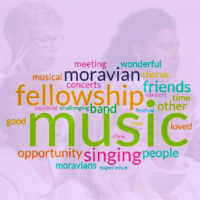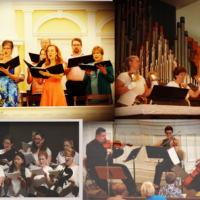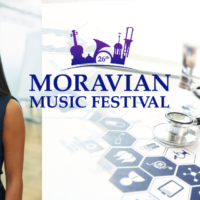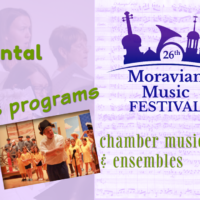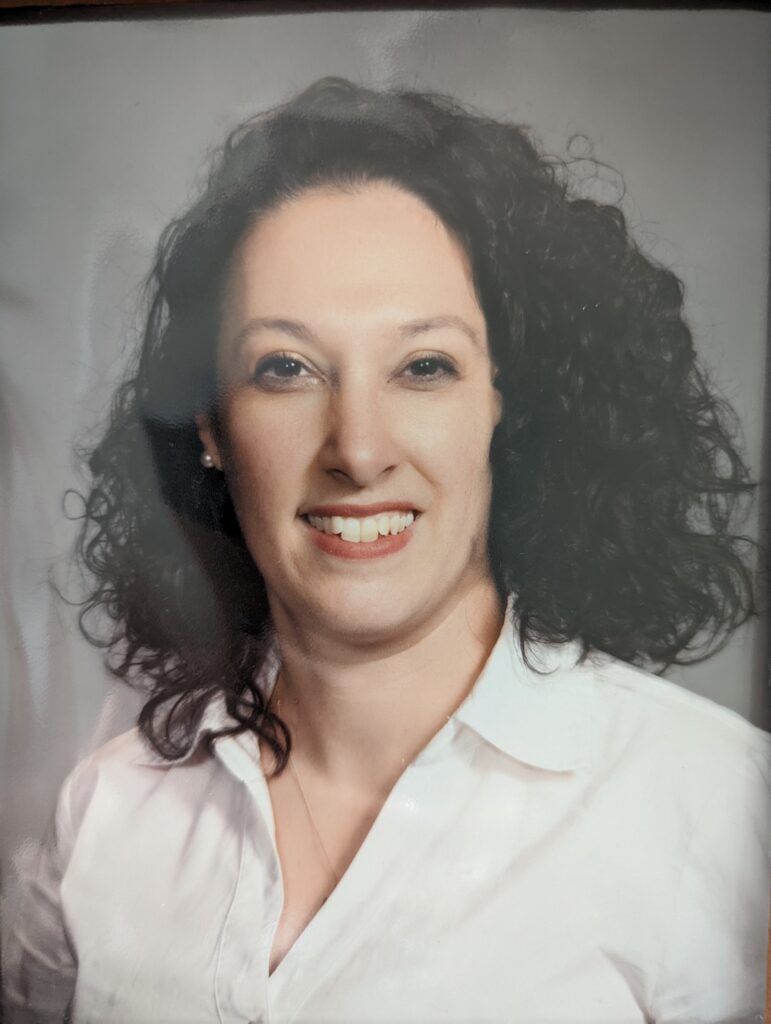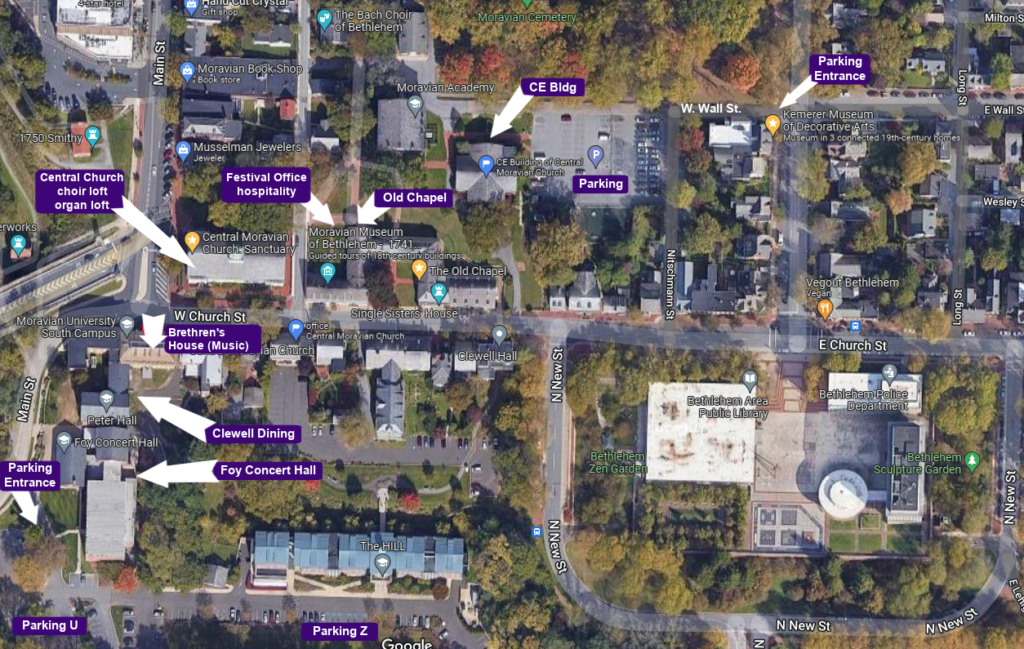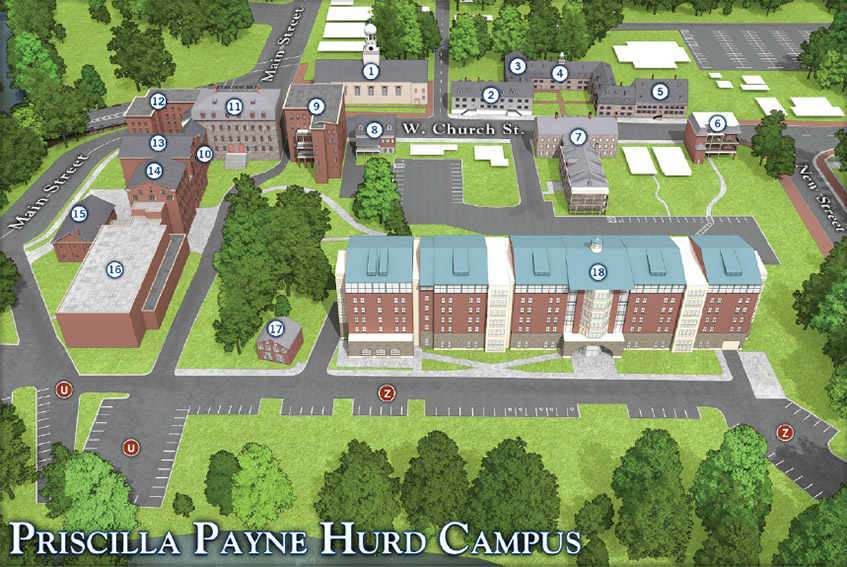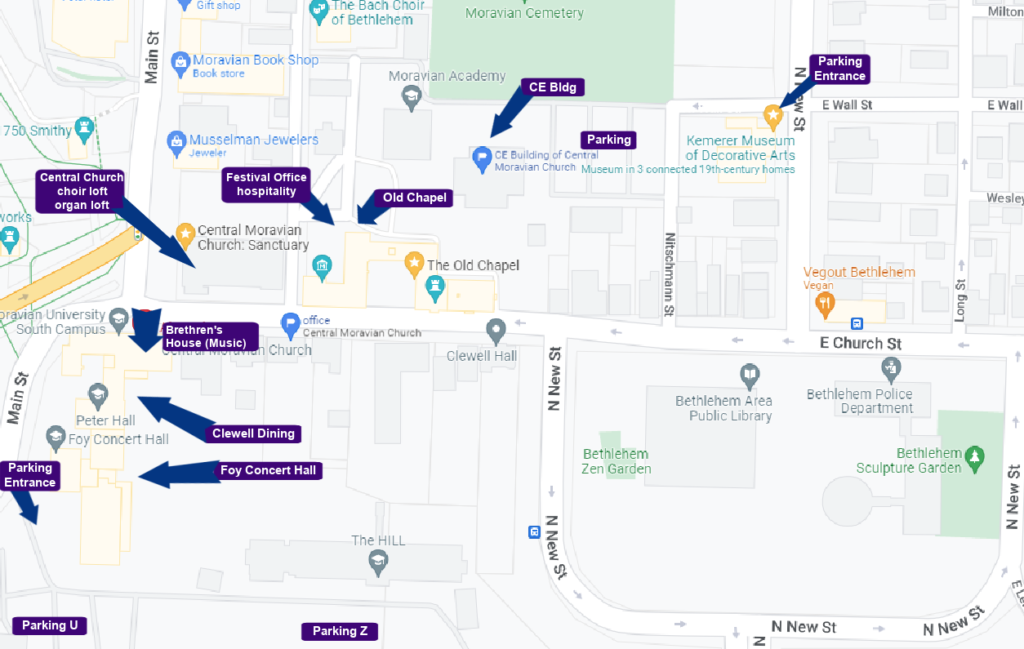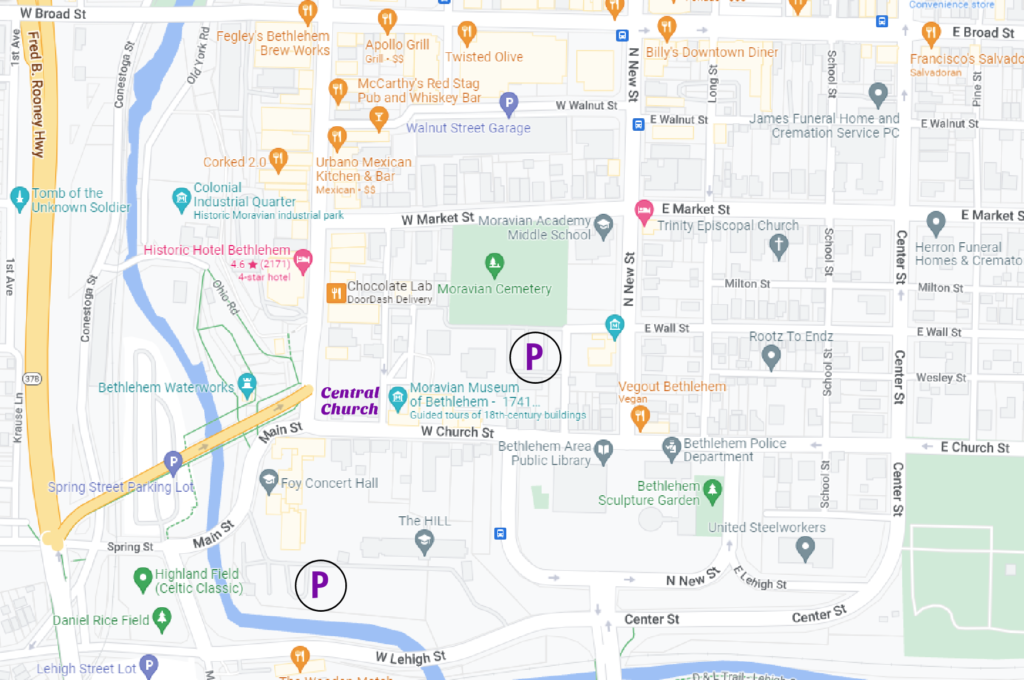Festival Chorus
Festival Chorus is open to all vocalists registered for the Festival. Required is a love of Moravian music, a thirst for learning, and commitment to sharing your talent.
The Festival Chorus and Orchestra is conducted by Maestro John Sinclair. You may find more about Dr. Sinclair on the Festival Leaders page.
The main projects will be virtual chorus presentations of four anthems. You will follow John on the screen of the first device (computer, laptop, tablet), listening with headphones, and sing your part into a second recording device (smartphone, tablet). More detailed instructions are found at the links below.
These virtual presentations will then be shared with other Festival participants and the public during Festival week.
Repertoire for Virtual Chorus
Truly, He Has Borne Our Frailty – Herbst
Truly, He Has Borne Our Frailty (Fürwahr, Er trug unsre Krankeit)
SATB choir; organ/piano MMFS1716
Johannes Herbst (1735-1812)
Text: Isaiah 53:4,5
Edited by Nola Reed Knouse; Text translated by C. Daniel Crews and Nola Reed Knouse
Johannes Herbst was born at Kempten, Swabia, and joined the Moravian Church in 1748. He first served the church as bookkeeper and teacher, and especially as an organist, before coming to America in 1785 to be a pastor in Lancaster and Lititz, Pennsylvania. In his spare time he was a prolific composer, producing over 100 anthems and 200 sacred songs. He was also an avid copier of other composers’ music, and his personal collection of over 1000 anthems and many larger works is a source of incalculable value for the study of Moravian music. He was consecrated a bishop in Lititz on May 12, 1811, two days before leaving to take up new work in Salem, North Carolina. He brought his precious music collection with him, but served only a few months before his death there on January 15, 1812. He is buried in God’s Acre in Salem.
Truly, He Has Borne Our Frailty was edited from manuscript copies in the Bethlehem Congregation, Lititz Congregation, Salem Congregation, and Johannes Herbst Collection. The Herbst Collection manuscript identifies the work as written for Great Sabbath (Holy Saturday) of 1775. The work is originally scored for strings and organ. Full score and parts are available from the Moravian Music Foundation, as is a copy of the organ part in a lower key.
The publication of this anthem is sponsored in honor of C. Daniel Crews on his 70th birthday and in appreciation of his life as father, Moravian Archivist and Historian, writer, translator, and pastor, always with a dash of humor; and in memory of Sarah Dunivant Crews, remembering with love her life as mother and nurse and her ministry of music through voice, French horn, trombone, cornet, piano and organ; by their children and spouses, Elizabeth (Crews) and Will Chriscoe; Eric and Stephanie Crews; their grandchildren, Ian and Sadie Crews, and Daniel’s wife, Linda Reed Crews.
Surely He Hath Borne Our Griefs – Antes
Surely He Hath Borne Our Griefs
Soprano solo, SATB choir; organ/piano MMFS2006
John Antes (1740-1811)
Text: solo: anonymous ; chorus: Isaiah 53:4a, 5
Edited by Nola Reed Knouse
John Antes was born and raised in Pennsylvania. After working for a few years as an instrument maker in Bethlehem, he was invited to come to Europe, where he undertook several kinds of business with little success. Called to serve the church as a missionary in Egypt beginning in 1769, he survived many adventures both in travel and in his work there. He was tortured and nearly killed by followers of Osman Bey, a local official of the Ottoman Empire. It was sometime during this Egyptian period of his life that Antes wrote the Three Trios, identified as Opus 3, and a set of string quartets which are missing. Antes was recalled to Germany in 1782, and beginning in 1785, he served as a business manager in Fulneck, England. His composition of sacred concerted vocal works (some three dozen in all) began during the 1780’s, and he retired to Bristol, England, in 1808, where he died on December 17, 1811. His Three Trios, though they were written abroad, are the earliest known chamber music composed by an American.
Go, Congregation, Go – Surely He Hath Borne Our Griefs was edited from manuscript copies in the Johannes Herbst, Bethlehem Congregation, and Nazareth Congregation Collections. The anthem is scored for strings and organ. Full score and parts are available from the Moravian Music Foundation, as is a copy of the organ part in a lower key.
The publication of this anthem is sponsored by the Central Moravian Church Choir and Chapel Choir in celebration and thanksgiving of Cathy Spallitta and her more than thirty years as soprano soloist of the Central Moravian Church Choir. Cathy joined the choir in 1974, became the soprano soloist in 1984 until 1997 when she moved to Florida. Cathy returned to Bethlehem on April 1, 2003, and resumed her role as soprano soloist from 2003 until present. Cathy’s extraordinary and powerful gift of song has helped us to experience the tender peace and the thrilling joy of God’s extravagant love. “Make a joyful noise to the LORD, all the earth; break forth into joyous song and sing praises.” (Psalm 98:4)
We Are Members of Christ’s Body – D M Michael
We Are Members of Christ’s Body (Wir sind Glieder)
SSAB choir; organ/piano MMFS1906
David Moritz Michael (1751-1827)
Text: Verse 1, Ephesians 5:30 (trans. Nola Reed Knouse)
Verse 2, Nola Reed Knouse, from Matthew 25:31-40
Edited by Andy Moore
David Moritz Michael (1751-1827) was born in Kühnhausen (near Erfurt in Thuringia), Germany, and did not become a Moravian until he was thirty years old. He taught in the Moravian school at Niesky and came to America in 1795. His official church position was as a worker with the young men of the congregations in Nazareth and Bethlehem, but his contributions to the musical life of the settlements were great. He revitalized the Bethlehem Collegium musicum and conducted the performance of Haydn’s Creation which may have been its American premiere. In addition to his well-known woodwind ensemble pieces, he also composed seventeen anthems for four-part choir, several vocal solos and duets, and an eleven-movement setting of Psalm 103. He returned to Germany in 1815 and died in Neuwied, Germany, on February 26, 1827.
We Are Members of Christ’s Body was edited from manuscript copies from the music collections of the Bethlehem and Nazareth Congregation collections and the Johannes Herbst Collection. The work is originally scored for strings, and organ. Full score and parts are available from the Moravian Music Foundation, as is a copy of the organ part in a lower key.
The funding for this publication was given in honor of Dr. Doris Schattschneider in grateful appreciation for her many years of service as President of the Board of Directors of Moravian Open Door, a transitional housing and support services ministry of the Moravian Church, in New York.
Morning Star in Darkest Night – Hellström
Morning Star, in Darkest Night (Morgenstern auf finstre Nacht)
for SATB choir; organ/piano MMFS1401
Georg Friedrich von Hellström (1825-1912)
Edited by Gwyneth Michel and Nola Reed Knouse
Text: Johann Scheffler (1624-1677)
Translated by C. Daniel Crews and Nola Reed Knouse
Georg Friedrich Hellström (1825-1912) was born in Zeist to a Swedish father and Danish mother. He was educated in Niesky, where he played viola in the orchestra, sang in the choir, and was trained as an organist. After serving as a teacher in Niesky, Kleinwelka, and Ebersdorf, he was called to Christiansfeld, Denmark, in 1852. During his forty-two years of service there, he witnessed the transition of the congregation’s music towards a more romantic style. He was a prolific composer, and his frugal habits led him to copy many of his own compositions on the backs of older works by such composers as Christian Gregor, Freydt, Geisler, and others. He was well known in Germany and was offered the position of music teacher and organist at Gnadenfrei in 1859, but chose to remain at Christiansfeld. His later service included work at Gnadenberg (1894), Kleinwelka (1895), and Neudietendorf (1898), where he remained until his death.
Morning Star, in Darkest Night was edited from manuscript copies provided by the Nazareth Moravian Church, Nazareth, Pennsylvania.
In recognition of the work of the Moravian Music Foundation to “preserve, share, and celebrate the musical culture of the Moravians,” Jeanne and David Serfas have provided the funding for this publication.
Password Protected Resources for Chorus:
- Once you register, you will be given a password to access all the choral resources.
- Here you will find MP3 audio files of the piece, the accompaniment, and special audio highlighting each of the SATB parts for practice.
- Also, there is a video of the conductor along with audio of the singers and accompaniment. This is the video you will listen to and watch while you record yourself singing your part.
- Finally, you will find detailed instructions on recording yourself, from our editor/producer of the virtual chorus, Jacob Patrick.
Grateful appreciation to the singers and the team at Rollins College who created these resources for the Festival, especially
John Sinclair,
Jamey Ray, and
Billy B. Williamson!
PDFs and MP3 audio of the Choral anthems, HERE:
Links to audio/video tracks for making your virtual choir recording, HERE:
We hope to see you at the live in-person Festival in 2022 in Bethlehem, to present the music we learn this year.
